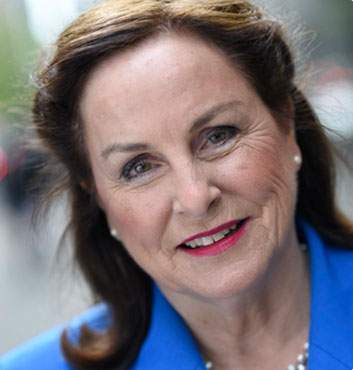Psychiatrist Jonathan L. Tobkes, M.D., co-author of When Your Child Is Gay: What You Need to Know (Sterling: 2016), states that “acceptance involves acknowledging the reality of a particular situation and recognizing that it is not in your power to change it. When faced with circumstances that are not only distressing, the only way to alleviate internal angst and achieve a sense of equanimity is through acceptance.”
As a parent whose “particular situation” is her child’s overdose from opioids in 2016, can equanimity ever be possible? I think it can. The alternatives seem so dire: pulling the covers over your head and staying there, shutting your friends and the world out, and railing at the Lord and the medical community for not being able to prevent the death. You can feel like a victim easily, blame others and yourself, or work (yes, it does take work) at feeling strong.
How do you do this? With therapy, prayer, and in my case, reading and writing about addiction. Others may achieve equanimity through vacations, yoga retreats, and Al-Anon.
I only knows what works for me. This is not to say that I don’t get sad upon occasions like Christmas or think of James when I order his favorite food at a restaurant, but I have reached the point where I no longer weep at his grave that I religiously visit on his birthday, June 10th.
When I hear my own voices in my head questioning what else I could have done to abort his untimely death, I press the stop button and tell myself that all parents make mistakes bringing up kids. I realize now that those who are afflicted with substance abuse disorders can’t be fixed by parents, that the addicts have to own their own behavior and be held accountable.
The general sense of equanimity has come because our family is peaceful. Our newly- married daughter, as an only child now, relishes the attention she finally gets and deserves. As she always had to take a “back seat” to her older troubled brother, she was resentful. She is no longer torn between her angry feelings towards him and her parents for not stopping her sibling’s behavior.
I am at peace because I know my son is no longer conflicted. When he was in jail, I felt a sense of relief that he was safe, not using. I felt as if I were on a holiday during his absence. Unburdened now, I have a similar feeling, only it’s permanent. I don’t feel like a failure as a parent. I’m not terminally disappointed with my self and others.
It is much less nerve-wrecking to not have to hide your wallet, your prescriptions, your jewelry, and put them under your pillow or a safe. I used to hate re-entry to our house after going out to a movie or dinner. It was bad enough being asked how James was and I felt compelled to cover for him. I always dreaded coming home as I didn’t know what temptations our son would experience in our absence and what chaos would ensue in our household.
I am grateful that we are no longer feeding his habit, wasting money on expensive rehabs that disappointed once again, or having our money stolen by one who manipulates when “high.” We can finally spend our money as we see fit, not through the lens of the substance abuser.
Aside from the sense of peace I feel or as Dr. Tobkes calls it equanimity, when you have lived with someone who has a substance abuse disorder, you realize how tough it is for them to maintain sobriety. In some way, it makes you empathetic for the recovering community.
It seems as if everyone knows somebody: a relative, a neighbor, someone’s son like mine who has died. You don’t regard them as criminals who have chosen this road to Hell, but as sick individuals. You are more accepting and sensitive to their plight.
Although psychiatrist Elisabeth Kubler-Ross, M.D. in On Death and Dying, is talking about patients dying, her analogy to acceptance is apt here: “acceptance should not be mistaken for a happy stage. It’s as if the pain had gone, the struggle is over.”

Wesley Cullen Davidson
Wesley Cullen Davidson is an award-winning freelance writer and journalist specializing in parenting. Currently, she is targeting her writing about recovery to parents whose children have substance abuse disorders.